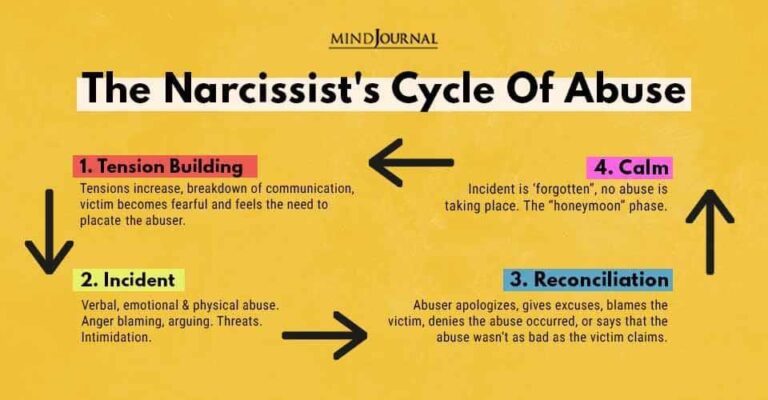Have you ever witnessed someone suddenly explode in anger during an argument, lashing out with words that feel more like an assault than a conversation? That intense, sometimes baffling outburst might be what psychologists call “narcissistic rage.” It’s a powerful emotional reaction that fuels some of the most cutting and memorable verbal attacks we encounter. In this blog post, we’re diving deep into the world of narcissistic rage—what it is, why it happens, and how it shapes the way people communicate when their ego feels threatened. Whether you’re trying to understand a difficult person in your life or simply curious about the psychology behind fiery verbal clashes, stick around—we’re unpacking it all!
Table of Contents
- Understanding Narcissistic Rage and Its Impact on Communication
- How Verbal Attacks Manifest During Narcissistic Outbursts
- Strategies to Protect Yourself from Narcissistic Verbal Abuse
- Healing and Setting Boundaries After Experiencing Narcissistic Rage
- In Summary
Understanding Narcissistic Rage and Its Impact on Communication
Narcissistic rage is more than just an emotional outburst—it’s a complex defense mechanism triggered when a narcissist’s fragile self-esteem is threatened. Unlike typical anger, this rage is explosive, disproportionate, and often weaponized in communication. When caught off guard or feeling humiliated, those experiencing narcissistic rage may lash out with verbal attacks that aim to control, dominate, or humiliate the other person. It’s a way of reasserting power and regaining a sense of superiority, often leaving the target feeling confused, criticized, or emotionally wounded.
Understanding this form of rage helps in decoding the patterns behind hurtful conversations. Some common signs include:
- Sudden shifts from calm to intense aggression without clear provocation.
- Dishonest narratives that twist facts to put the narcissist in a favorable light.
- Dismissiveness and invalidation of others’ feelings.
- Relentless criticism targeting personal vulnerabilities.
Knowing these traits allows individuals to better protect their emotional well-being and maintain clearer boundaries during difficult interactions. It’s a delicate dance—balancing empathy with self-preservation—that can profoundly change how communication unfolds in the presence of narcissistic rage.
How Verbal Attacks Manifest During Narcissistic Outbursts
When narcissistic rage erupts, verbal attacks are often impulsive and laced with intent to wound deeply. These outbursts typically feature sharp sarcasm, relentless criticism, and personal insults designed to dominate and belittle. The language used is not accidental; it’s carefully crafted to undermine the target’s confidence and provoke submission. At their core, these attacks aim to reassert control, shattering any perceived threat to the narcissist’s fragile ego. Understanding this helps to see past the aggression as a distorted defense mechanism, not just mean-spirited behavior.
Common patterns emerge during these verbal storms, including:
- Gaslighting: Twisting facts to confuse and destabilize the listener
- Projection: Accusing others of faults they themselves possess
- Triangulation: Involving third parties to amplify discord
- Blame-shifting: Avoiding accountability by casting fault outward
Each tactic amplifies the chaos of the rage episode while reinforcing the narcissist’s psychological armor. Recognizing these elements empowers one to respond with clarity rather than emotional escalation.
Strategies to Protect Yourself from Narcissistic Verbal Abuse
When faced with a torrent of narcissistic verbal attacks, the best defense is often a carefully crafted boundary. Recognizing manipulative language for what it is helps diffuse its power before it sinks in. Stay calm and avoid reacting impulsively—narcissists feed off emotional responses. Instead, try to remain emotionally detached, using neutral phrases like “I see your perspective,” or “Let’s pause this conversation.” This technique not only protects your peace but also signals that their attempts to provoke are ineffective.
Another vital strategy involves strengthening your support network. Surrounding yourself with trusted friends, family, or professional counselors who validate your experience can bolster your self-worth and remind you of your reality. Keeping a journal to document abusive encounters can also empower you by providing clarity and helping you recognize patterns over time. Remember, you’re not alone, and maintaining self-respect through assertive communication and firm boundaries is key to reclaiming your emotional safety.
Healing and Setting Boundaries After Experiencing Narcissistic Rage
Emerging from the storm of narcissistic rage requires not just time but intentional self-care and an understanding of your own limits. Healing starts with recognizing that the verbal attacks you endured were not reflections of your worth but manifestations of deep-seated insecurities in the aggressor. Embrace practices that restore your inner peace—whether it’s journaling your feelings, seeking therapy, or surrounding yourself with empathetic friends. Reclaiming your emotional space means nurturing your mind and body, allowing yourself to feel every emotion without judgment.
Setting boundaries after these experiences is essential to protect your newfound peace and prevent further harm. It’s okay to assert your needs clearly and firmly. Some effective ways to establish boundaries include:
- Limiting interactions with the person who triggered the rage
- Communicating assertively without engaging in blame or justification
- Creating safe spaces for yourself, physically and emotionally
- Learning to say no unapologetically
Remember: boundaries aren’t walls that isolate you, but fences that protect your garden. You deserve respect, peace, and the freedom to heal without fear or guilt.
In Summary
Thanks for sticking with me through this deep dive into the world of narcissistic rage and its impact on verbal attacks. Understanding these explosive reactions can feel like decoding a secret language—one that helps us protect our own peace and set healthier boundaries. Remember, it’s not about excusing hurtful behavior but about recognizing where it’s coming from so we can respond with empathy and strength. If you’ve ever found yourself on the receiving end of this kind of rage, take heart: awareness is your first step toward reclaiming your calm. Until next time, take care of yourself and keep shining your light!

